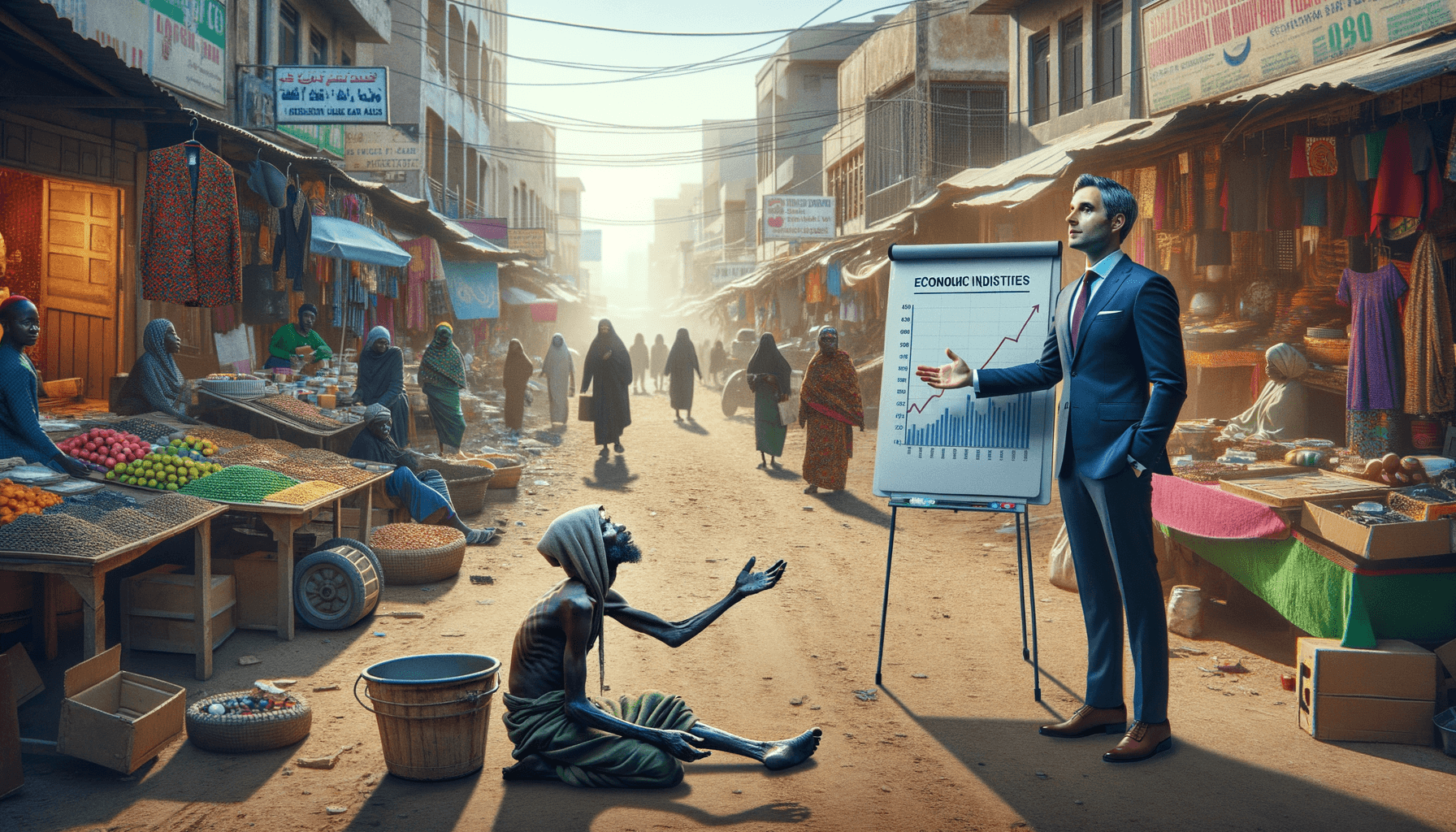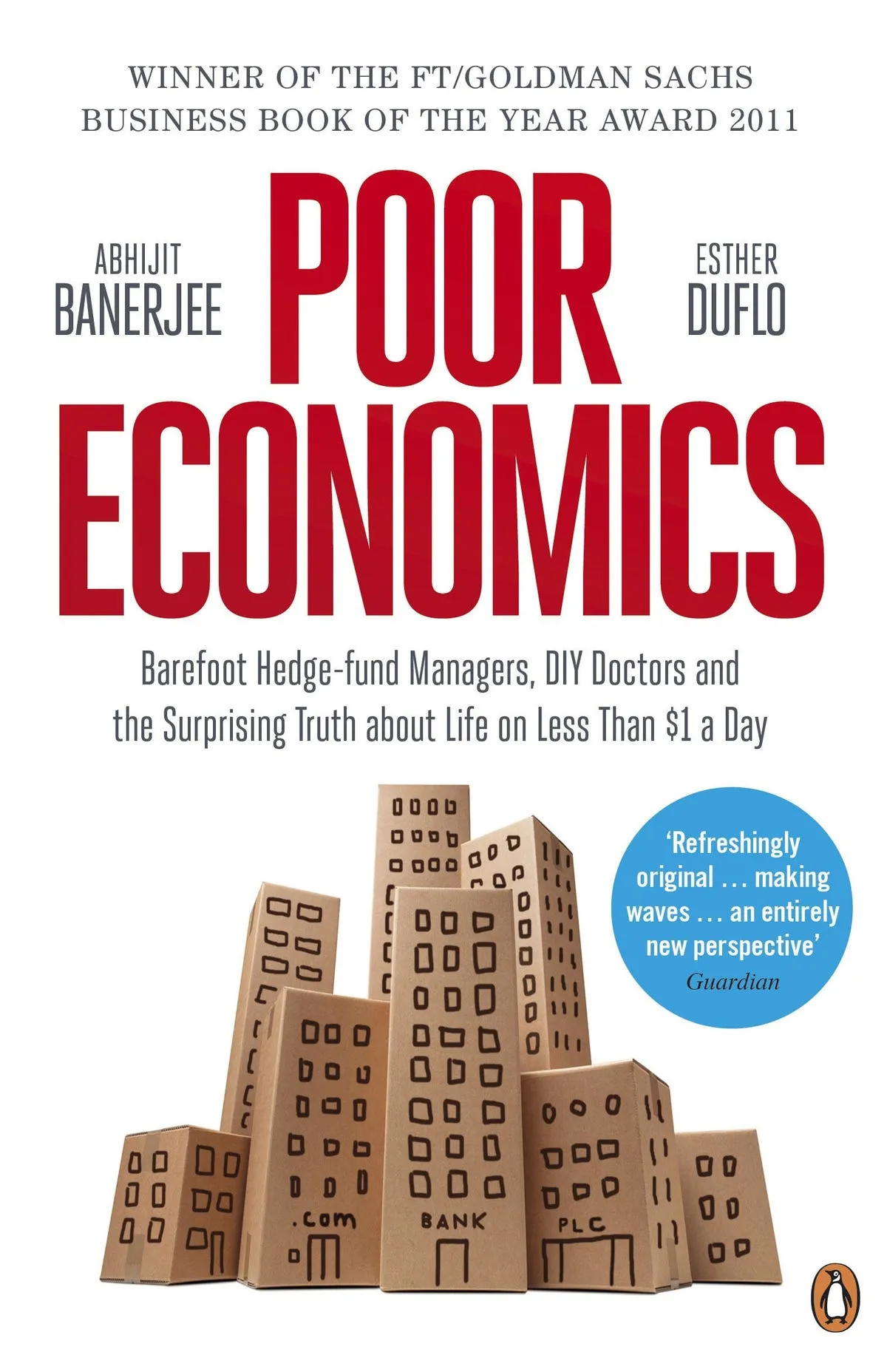The book offers an insightful exploration into the lives of the poor and the economic decisions they make. It presents groundbreaking research and analysis on the most effective ways to address global poverty. Banerjee and Duflo use real-world examples and rigorous evidence to challenge common assumptions and propose innovative solutions that can significantly improve the well-being of the world's poorest populations.

"Poor Economics: A Radical Rethinking of the Way to Fight Global Poverty," authored by Nobel laureates in Economics, Abhijit V. Banerjee and Esther Duflo, thoroughly illuminates the economic challenges and living conditions of the poor. The book is rich in case studies and experiments that aim to understand the motives and decisions of impoverished individuals.
It applies randomized control trials, which are primarily used in medical research. The authors advocate for small, local, effective, and measurable interventions instead of large-scale, centralized projects without direct means to measure success.
Specifically, Banerjee and Duflo focus on local projects that address specific poverty traps such as malaria infections, insufficient use of fertilizers, or poor education of children. In my opinion, their evidence-based approach to targeted poverty alleviation definitely deserves more attention – poverty alleviation is a topic that is always relevant, regardless of other global crises.
Banerjee and Duflo compellingly demonstrate how the reality of life for people in extreme poverty differs from that of the wealthier. Decisions that seem absolutely rational and sensible for wealthier individuals often appear bad or at least feel disadvantageous for the very poor.
A major difference, for example, is that their decisions are often much more conservative and risk-averse because any unexpected challenges like illness, drought, or theft can threaten their existence. Even small, potentially very lucrative investments, such as buying fertilizer, thus become risky, as this money might be needed in the short term to solve existential problems. This leads to constant stress and consequently to decisions that perpetuate rather than combat poverty, thus becoming difficult poverty traps to overcome.
Personally, I found the challenges faced by the poor in the educational sector particularly intriguing, as education is, to me, the key to many problems. Many families believe that the value of school education lies only in achieving a diploma, not in education itself. The reasoning behind this is that a child with a diploma will find a better job and thus lift the family out of poverty. However, this belief leads to poor families often concentrating their limited resources on the education of the potentially most suitable child, usually the eldest son, leaving siblings and especially sisters almost completely out of the picture. Banerjee and Duflo, however, show why the value of education is linear — that is, every additional week in school brings additional value in the form of increased income.
Measures that help parents understand this require relatively small effort but have a hugly positive effect, as they allow more children to benefit from education.
Among countless other examples and topics, I also found the analysis of the importance of dignity and status in social groups under the most adverse conditions interesting, as it shows how important basic dignity is for a person – regardless of their situation.
For instance, the authors demonstrate how even among undernourished individuals, a slight increase in income often does not lead to them buying more calorie-rich food. Instead, they prefer more expensive and higher quality food or even luxury items like alcohol, tobacco, and tea. This allows them to feel better and increase their standing in the group, which in many cases is more valuable to them than completely eliminating hunger.
Poor Economics is a must-read for anyone interested in development economics and poverty alleviation. The book not only provides a solid analysis of the daily decisions of the poor but also offers practical insights and solutions for effectively combating poverty. The authors challenge conventional wisdom and offer a new perspective on the economics of poverty, based on a deep understanding of reality.
Their approach of thinking small and accepting the short-term irrationality of human behavior makes this book a valuable resource for policymakers, researchers, and everyone who wants to strive for a fairer world.
